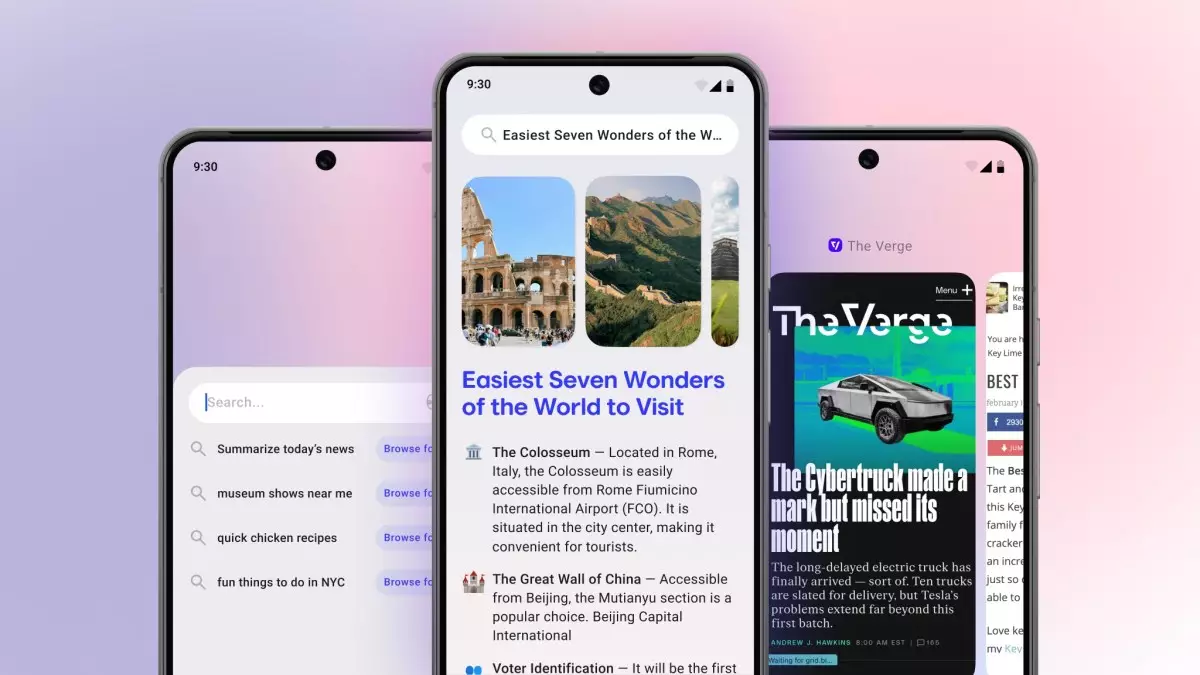In a landscape dominated by a handful of web browsers, The Browser Company is attempting to carve out its niche with its innovative Arc Search browser. Recently, the company announced the open beta launch of Arc Search for Android, marking a significant expansion of its cross-platform strategy. Having already introduced its software to the Apple ecosystem and a Windows client earlier this year, this latest move signifies their commitment to broadening accessibility across multiple devices. The anticipation surrounding this launch reflects a growing consumer appetite for alternative browsing solutions that prioritize user experience and specific functionalities.
Prior to its public availability, Arc Search garnered feedback from a closed beta program involving 18,000 users over a span of four weeks. This meticulous testing phase played a crucial role in refining the browser’s functionalities, ensuring that its unique features resonate with user needs and expectations. The operational ethos of The Browser Company appears focused on user-centric design and innovation, demonstrated through its attentive approach to product development and enhancement. By closely monitoring user interactions, the company is better positioned to address potential issues that users might encounter after the broader release.
One of the standout features of Arc Search is its “Browse for Me” functionality, which utilizes an AI-driven algorithm to collate relevant information from various web pages based on a search query. This feature seeks to streamline the user experience, especially for those engaged in tasks like searching for recipes or other complex inquiries. While the promise of distilled, relevant information is appealing, it has not come without controversy. Critics have raise concerns regarding the impact of AI-driven search results on smaller websites. These entities often rely on traffic generated through traditional search methods, and they fear that AI summarization could lead to a detrimental decrease in visibility and revenue.
In response to the criticism, CEO Josh Miller acknowledged the need for a balanced approach that supports both users and content creators. During a recent interview on the Decoder podcast, he mentioned initiatives to enhance citation practices in search results, encouraging users to access and engage with the original content. This acknowledgment signifies an important pivot for The Browser Company as it navigates the complexities of ethical content utilization while striving to offer enhanced user experiences. The dialogue with media companies further emphasizes their commitment to finding a mutually beneficial path that sustains content creators.
While the initial launch of Arc Search on Android showcases several appealing features, such as an integrated ad-blocker and tab auto-archiving, it currently lacks some functionalities present in the iOS version, including features like pinch-to-summarize. As The Browser Company works to enhance its Android iteration, continuous updates and feature rollouts will likely determine its success within the competitive browser marketplace. Heightened emphasis on user experience and functionality will be critical as they navigate initial user feedback and refine the app further.
Despite the excitement surrounding its innovative product offerings, The Browser Company faces significant challenges, particularly regarding revenue generation. Recent fundraising efforts, including a $50 million capital raise at an impressive $550 million valuation, demonstrate investor confidence in the potential of Arc Search. However, the reality remains that without a clear monetization strategy, the company must prove its long-term viability in a fiercely competitive market. Miller has hinted at the future rollout of a paid model for businesses and individuals, suggesting a thoughtful approach to sustaining growth while providing added value.
As The Browser Company introduces Arc Search to Android users, the broader implications of its cross-platform strategy remain to be seen. Its innovative approach to browsing, grounded in AI technology, aims to transform the way users interact with information online. Yet, as it navigates criticism and looks to the future, the balance between user satisfaction and ethical content practices will dictate its success. The coming months will be critical in determining whether Arc Search can not only capture a dedicated user base but also establish itself as a viable contender in the digital browsing arena.

